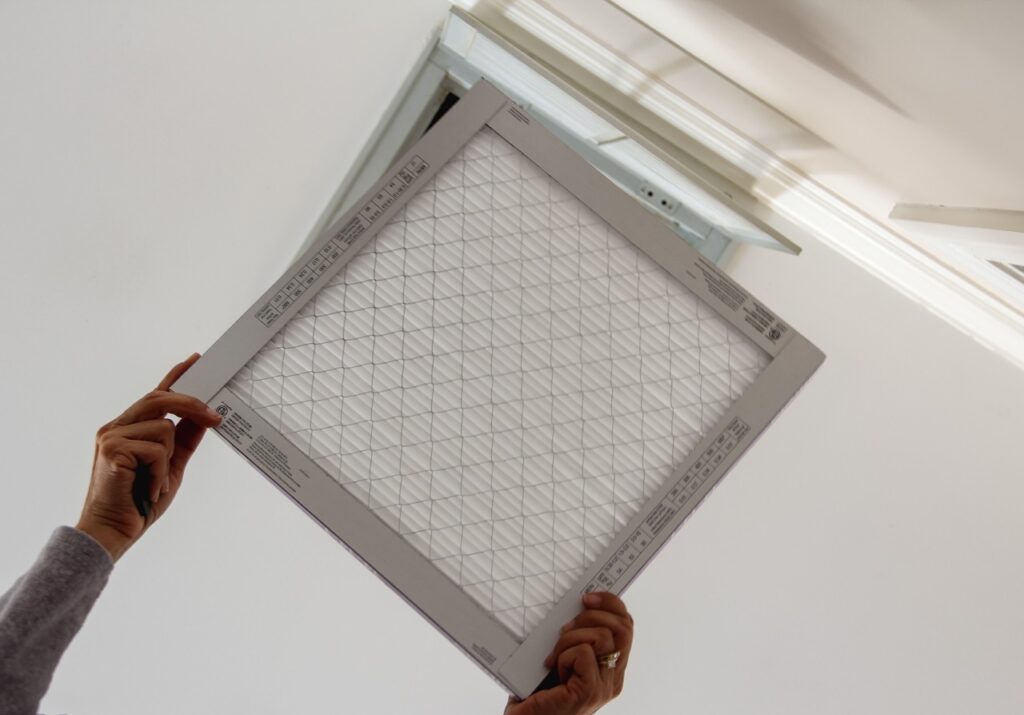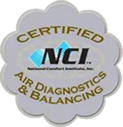Indoor air quality is a critical factor in maintaining a comfortable, healthy, and energy-efficient living space. While air purifiers, ventilation services, and humidification systems all contribute considerably to improving the air quality in your home, air filtration stands as a vital component that addresses airborne particles and contaminants, offering an array of benefits.
A high-quality air filtration system can effectively remove common indoor air pollutants and allergens, such as dust, pollen, mold spores, pet dander, and even bacteria, ensuring the air you and your family breathe is consistently clean and healthy. Stay tuned as we delve into the importance of air filtration systems, discuss various types of air filters and their specific applications, and examine how our professionals can provide expert guidance in selecting and installing the ideal air filtration solution tailored to your home’s unique needs and challenges.
Types of Air Filters
There are various types of air filters available in the market, each designed to address specific air quality issues and requirements. Some common air filter types include:
- Mechanical Filters: Mechanical filters, such as pleated or fiberglass filters, utilize a dense mesh or fabric material to capture and trap airborne particles. These filters are typically rated using the Minimum Efficiency Reporting Value (MERV) system, with higher MERV ratings indicating better filtration efficiency. Pleated filters generally have a higher MERV rating than fiberglass filters, making them more effective at capturing smaller particles.
- HEPA Filters: High-Efficiency Particulate Air (HEPA) filters are among the most efficient air filtration solutions available, capable of trapping up to 99.97% of particles as small as 0.3 microns in size. Due to their exceptional filtration efficiency, HEPA filters are particularly suitable for households with allergy sufferers or individuals with respiratory issues.
- Washable and Reusable Filters: These filters are constructed from materials that can be cleaned and reused, offering a more eco-friendly alternative to disposable filters. While washable filters may have a lower initial cost, their filtration efficiency tends to be lower compared to disposable options with high MERV ratings.
- Activated Carbon Filters: These filters utilize porous carbon material to adsorb airborne contaminants, such as volatile organic compounds (VOCs) and odors. Activated carbon filters are often used in combination with other types of filters to provide comprehensive air purification.
Selecting the Right Air Filter for Your Home
Choosing the ideal air filter for your home depends on several factors, including the specific air quality concerns you want to address, your HVAC system’s compatibility, and your budget. To determine the best-suited air filter for your needs, consider the following:
- Assess Your Air Quality Needs: Identify the primary air quality issues in your home, such as allergies, asthma, pet dander, or odors. This information will help you narrow down the type of filter that will effectively address your specific concerns.
- Evaluate Filter Efficiency: Review the MERV rating or HEPA classification of the filters you are considering, keeping in mind that higher efficiency filters are generally better at capturing smaller particles and allergens.
- Consult Your HVAC System’s Requirements: Check your HVAC system’s manufacturer’s recommendations for compatible air filters, as using a filter with a higher MERV rating than specified may impede airflow and reduce system efficiency.
- Determine Maintenance Needs: Consider the required maintenance and replacement frequency of the filters you are comparing, as some filters may necessitate more frequent cleaning or replacement, which could impact long-term costs.
Professional Air Filtration System Installation and Maintenance
Once you have selected the ideal air filter for your home, it is essential to ensure proper installation, maintenance, and timely filter replacements to maintain optimal indoor air quality. Our professionals can provide expert support throughout this process:
- Installation: Our technicians will install your air filtration system according to best practices and your HVAC system’s specific requirements, ensuring optimal performance and efficiency.
- Maintenance and Filter Replacement: Regular maintenance and filter replacement are crucial for maintaining your air filtration system’s efficacy. Our team can provide routine inspections and cleaning services to keep your system operating at peak performance. Additionally, we can recommend a filter replacement schedule based on your specific needs and the type of filter you have selected.
- Air Quality Monitoring: To ensure that your air filtration system is effectively addressing your home’s air quality concerns, our professionals can recommend and install air quality monitors that provide real-time information on indoor air pollutants and help you make informed decisions about adjustments or upgrades to your filtration system.
Conclusion
Investing in a high-quality air filtration system can significantly improve your home’s indoor air quality, offering numerous benefits such as reduced allergy symptoms, enhanced respiratory health, improved HVAC system efficiency, and odor control. By understanding the various types of air filters available and their specific applications, in conjunction with the expert guidance provided by our professionals at Air Plus Heating and Air, you can confidently choose and implement the ideal air filtration solution for your home, leading to a cleaner, healthier, and more enjoyable living environment for you and your family.
Contact our HVAC company today to learn more about our air filtration services in Palm Desert and how we can help you create the perfect indoor environment tailored to your unique needs and lifestyle.





